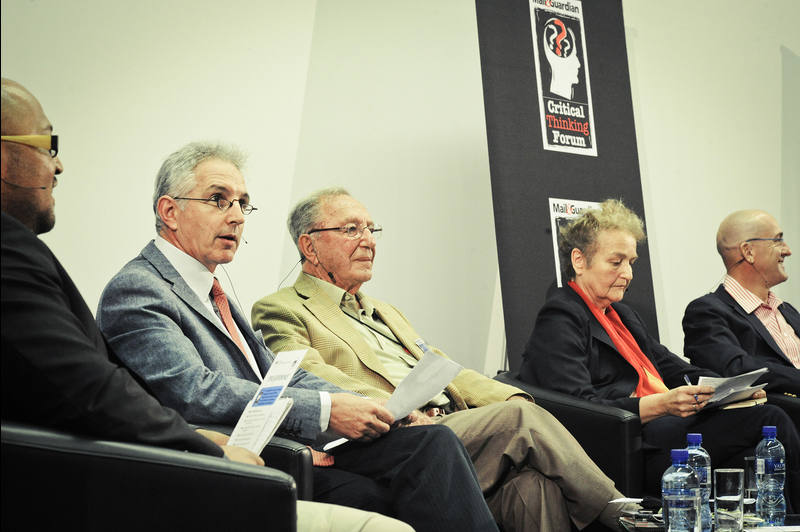Forum tackles critical questions facing business, labour and government
25 February 2013
UCT's recent Critical Thinking Forum, organised by the Mail & Guardian and the German Embassy, saw a host of high-level speakers grapple with the thorny issue of what could be done to mend the rift between business, government and labour.
After a welcome from Vice-Chancellor Dr Max Price the panellists looked at a range of issues pertinent to this important challenge, and all agreed that honest discussion is key to resolving the problem.
Price said it was opportune for UCT to host a debate of this nature when labour relations were in crisis following the Marikana massacre and Western Cape farm strikes.
The panellists were Sejamothopo Motau, Democratic Alliance Shadow Minister of Labour; Dr Herta Däubler-Gmelin, of the German Social Democratic Party; Tony Ehrenreich, COSATU provincial secretary in the Western Cape; Michael Spicer, vice-president (corporates and Africa) of Business Leadership SA; and Professor Ben Turok, ANC Member of Parliament.
Spicer told the debate business had allowed itself to become captive to political correctness, and had become too servile.
"When business and government get together, many business people become far too soft, and don't say what's on their minds. Equally, however, on the few occasions that they do, they are roundly castigated by government and their feet are cut off," he said.
Turok told the gathering it had to be borne in mind that South Africa was a society based on conflict; a society in which the state had, in the past, organised and coerced cheap migrant labour.
"No one would deny that we have to do much better (when it comes to) the relationship between business, labour and government. Clearly, things are not moving as they should, and no number of tea parties in the Cabinet office, or anywhere else, is going to fix it," said Turok.
One had to remember that South Africa was "rooted in a terrible history of cheap labour and oppression. Much of that legacy is still with us today".
Motau said when it came to resolving the labour challenges facing South Africa, people had lost faith. Labour felt that business was there merely to exploit workers to get as rich as quickly as possible.
Ehrenreich asked how it was possible for a farm worker to live on R65 a day. "We know it's impossible, yet we expect that," he said.
Many political parties criticised the status quo, but did not offer a single solution, he added.
Däubler-Gmelin said even in Germany, wages were going down. She said that where there was social and labour conflict, it was crucial for those directly involved to talk together to find solutions.
In his closing remarks, Mail & Guardian editor Nick Dawes said the fact that the panel consisted of local contributors who had a clear and important set of views on the issues facing labour in South Africa, along with "some triangulation" from Däubler-Gmelin and Price, had been a helpful feature of the debate.
To view the video, please go to Critical thinking forum web page.
 This work is licensed under a Creative Commons Attribution-NoDerivatives 4.0 International License.
This work is licensed under a Creative Commons Attribution-NoDerivatives 4.0 International License.
Please view the republishing articles page for more information.










